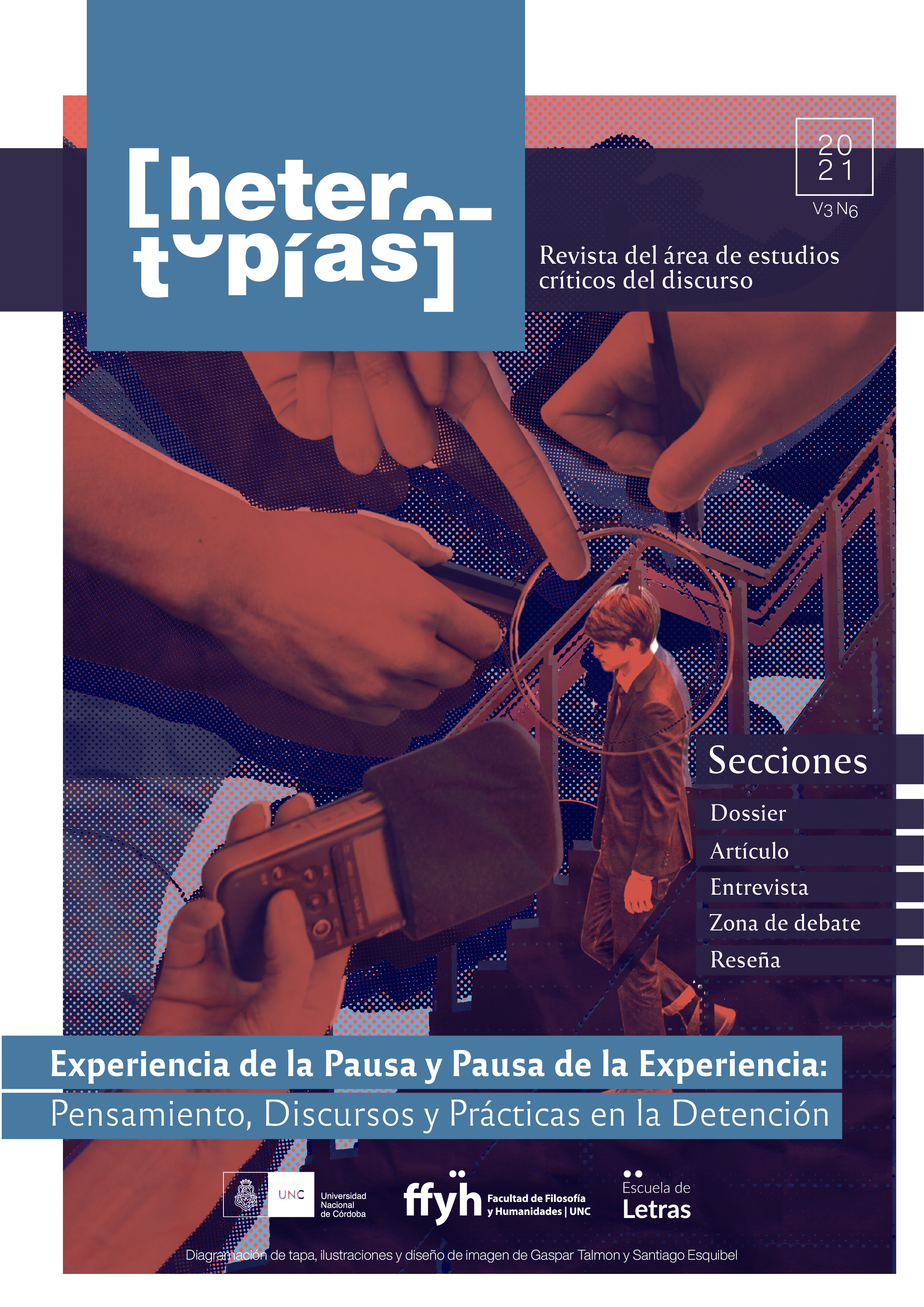Detention, thought and solitude In times of pandemic A possible interpretation from the ethical-political thought of Hannah Arendt
Main Article Content
Abstract
Although mind activities and worldly activities are different, they are closely related to each other. Reassembling this bond facing the difficulties in the modern world of the 20th century was one of the greatest challenges of the Arendtian corpus. For this reason, to evaluate the balance lost both in the field of thought and in the field of action in the current context of COVID-19, in this paper, I will try to highlight some articulations that can be examined between thought, plurality, action, and judgment, categories that Hannah Arendt has thoroughly worked on her intellectual career. The point of contrast will center on an interpretation of the link between thought and entertainment offered by Blaise Pascal in the seventeenth century in fragment 139 of his work Thoughts. To problematize my proposal, I will recover Arendt's considerations from chapter II of The Life of mind. This will allow us to rework the knot between thought and dialogue with oneself, enabled by the experience of interruption or pause. From this point on, I will try to elucidate different activities configured by the experience of thought, solitude, isolation, and loneliness. The Arendtian recovery of the figure of Socrates, in this framework, will be not only central to counterbalance how the link between solitary life and thought represented in the Pascalian figure was historically resolved, but also crucial to reflect upon the exercise of judgment in crises.
Downloads
Article Details

This work is licensed under a Creative Commons Attribution-NonCommercial-ShareAlike 4.0 International License.
Those authors who have publications with this journal, accept the following terms: Those authors who have publications with this journal, accept the following terms:
a. The authors will keep their copyright and guarantee to the journal the right of first publication of their work, which will be simultaneously subject to the Creative Commons Attribution - Non-Commercial - Share Alike (by-nc-sa) Attribution License; no commercial use of the original work or any derivative works is allowed, the distribution of which must be done with a license equal to the one that regulates the original work.
b. Authors may adopt other non-exclusive license agreements for the distribution of the published version of the work (e.g., deposit it in an institutional telematic archive or publish it in a monographic volume) provided that the initial publication in this journal is indicated.
c. Authors are allowed and recommended to disseminate their work through the Internet (e.g. in institutional telematic archives or on their website) before and during the submission process, which may lead to interesting exchanges and increase the number of citations of the published work. (See The effect of open access).
How to Cite
References
Arendt, H. (1995). De la historia a la acción. Barcelona: Paidós.
Arendt, H. (1996). Entre el pasado y el futuro. Ocho ejercicios sobre la reflexión política. Barcelona: Península.
Arendt, H. (2005). Ensayos de comprensión 1930-1954. Madrid: Caparrós.
Arendt, H. (1990). Hombres en tiempos de oscuridad. Barcelona: Gedisa.
Arendt, H. (2009). La condición humana. Buenos Aires: Paidós.
Arendt, H. (2002). La vida del espíritu. Barcelona: Paidós.
Arendt, H. (1998). Los orígenes del totalitarismo. Madrid: Taurus.
Arendt, H (1997). ¿Qué es la política? Barcelona: Paidós.
Forti, S. (2001). Vida del espíritu y tiempo de la polis. Hannah Arendt entre filosofía y política, Madrid: Cátedra
Friedlander, S. (2007) En torno a los límites de la representación. Bernal: Universidad Nacional de Quilmes.
Pascal, B. (2018). Pensamientos. Barcelona: Brontes.
